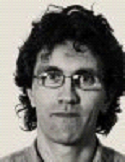INVITED SPEAKERS
 Boris G. Mirkin
Boris G. Mirkin
Email:
Organization: National Research University, Higher School of Economics, Moscow, Russia
Phone: *2707, 8 (963) 723-40-21
Homepage:
http://www.hse.ru/en/org/persons/3954058
Boris Mirkin holds a PhD in
Computer Science and DSc in Systems Analysis degrees from Russian Universities. In 1991-2010,
he travelled through long-term visiting appointments in France, Germany, USA, and a teaching
appointment as Professor of Computer Science, Birkbeck University of London, UK (2000-2010).
He develops methods for clustering and interpretation of complex data within the "data recovery"
perspective. Currently these approaches are being extended to automation of text analysis problems
including the development and use of hierarchical ontologies. His latest publications: textbook
"Core concepts in data analysis" (Springer 2011) and monograph "Clustering: A data recovery approach"
(Chapman and Hall/CRC Press, 2012).
Keynote talk - Ontology as a tool for automated interpretation
In the beginning, I am going to outline, in-brief, the current period of developments in the
artificial intelligence research. This is of synthesis, in contrast to the sequence of previous
periods (romanticism, deduction, and induction). Three more or less matured ontologies, and their use,
will be reviewed: ACM CCS, SNOMED CT and GO. The popular strategy of interpretation of sets of finer
granularity via the so-called overrepresented concepts will be mentioned. A method for generalization
and interpretation of fuzzy/crisp query sets by parsimoniously lifting them to higher ranks of the
hierarchy will be presented. Its current and potential applications will be discussed.
Presentation slides - click here
 Bernhard Ganter
Bernhard Ganter
Email:
Organization: Technical University of Dresden, Germany
Phone: +49 351 463-35355
Homepage:
http://tu-dresden.de/Members/bernhard.ganter
Professor Bernhard Ganter is a pioneer of formal concept analysis. He received his PhD in
1974 from the University of Darmstadt, Germany, and became Professor in 1978. Currently, he
is a Professor of Mathematics and the Dean of Science at the Technical University of Dresden,
Germany. His research interests are in discrete mathematics, universal algebra, lattice theory,
and formal concept analysis. He is a co-author of the first textbook and editor of several volumes
on formal concept analysis.
Keynote talk - Formal Concepts for Learning and Education
Formal Concept Analysis has an elaborate and deep mathematical foundation, which does not rely on
numerical data. It is, so to speak, fierce qualitative mathematics, that builds on the algebraic
theory of lattices and ordered sets. Since its emergence in the 1980s, not only the mathematical
theory is now mature, but also a variety of algorithms and of practical applications in different
areas. Conceptual hierarchies play a role e.g., in classification, in reasoning about ontologies,
in knowledge acquisition and the theory of learning. Formal Concept Analysis provides not only a
solid mathematical theory and effective algorithms; it also offers expressive graphics, which can
support the communication of complex issues.
In our lecture we give an introduction to the basic ideas and recent developments of Formal Concept
Analysis, a mathematical theory of concepts and concept hierarchies and then demonstrate the
potential benefits and applications of this method with examples. We will also review some recent
application methods that are currently being worked out. In particular we will present results on
a "methodology of learning assignments" and on "conceptual exploration".
Presentation slides - click here
 Diego Calvanese
Diego Calvanese
Email:
Organization: Free University of Bozen-Bolzano, Italy
Phone: +39-0471 016 160
Homepage:
http://www.inf.unibz.it/~calvanese/
Diego Calvanese is a professor at the KRDB Research Centre for Knowledge and Data, Free University
of Bozen-Bolzano, Italy. His research interests include formalisms for knowledge representation and
reasoning, ontology languages, description logics, conceptual data modelling, data integration, graph
data management, data-aware process verification, and service modelling and synthesis. He is actively
involved in several national and international research projects in the above areas, and he is the
author of more than 250 refereed publications, including ones in the most prestigious international
journals and conferences in Databases and Artificial Intelligence. He is one of the editors of the
Description Logic Handbook. In 2012-2013 he has been a visiting researcher at the Technical
University of Vienna as Pauli Fellow of the "Wolfgang Pauli Institute". He will be the program
chair of PODS 2015.
Keynote talk - Scalable End-User Access to Big Data
Ontologies allow one to describe complex domains at a high level of abstraction, providing end-users with
an integrated coherent view over data sources that maintain the information of interest. In addition,
ontologies provide mechanisms for performing automated inference over data taking into account
domain knowledge, thus supporting a variety of data management tasks. Ontology-based Data Access (OBDA)
is a recent paradigm concerned with providing access to data sources through a mediating ontology,
which has gained increased attention both from the knowledge representation and from
the database communities. OBDA poses significant challenges in the context of accessing large volumes
of data with a complex structure and high dinamicity. It thus requires not only carefully tailored
languages for expressing the ontology and the mapping to the data, but also suitably optimized
algorithms for efficiently processing queries over the ontology by accessing the underlying data sources.
In this talk we present the foundations of OBDA relying on lightweight ontology languages, and
discuss novel theoretical and practical results for OBDA that are currently under development in
the context of the FP7 IP project Optique. These results make it possible to scale the approach so
as to cope with the challenges that arise in real world scenarios, e.g., those of two large European
companies that provide use-cases for the Optique project.
Presentation slides - click here
Copyright © 2003-2026 Institute of Information and Communication Technologies. All rights reserved.
Last update: 27.09.2014 webmaster:
 Boris G. Mirkin
Boris G. Mirkin Bernhard Ganter
Bernhard Ganter Diego Calvanese
Diego Calvanese